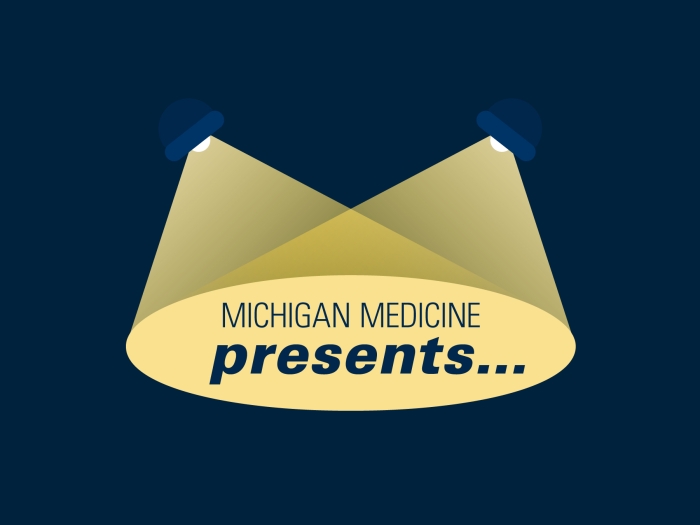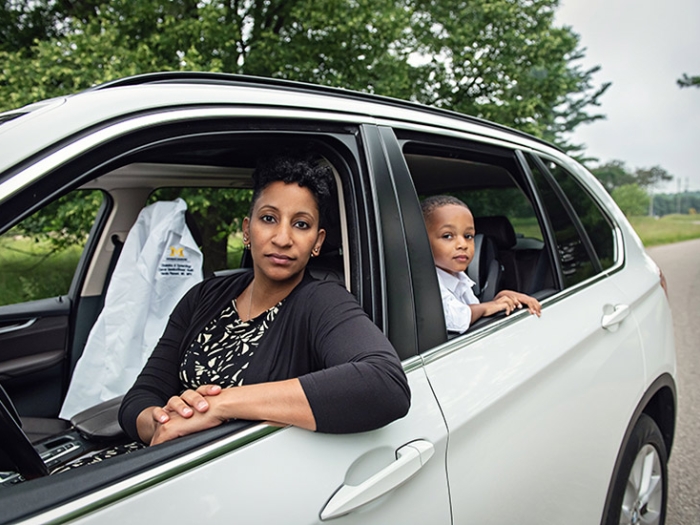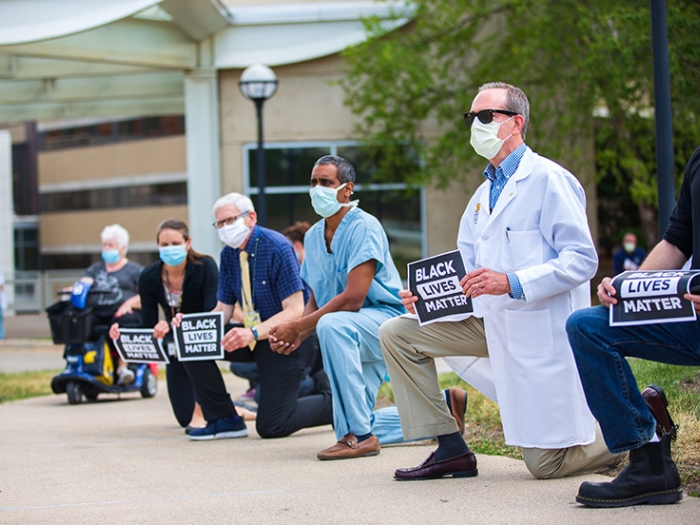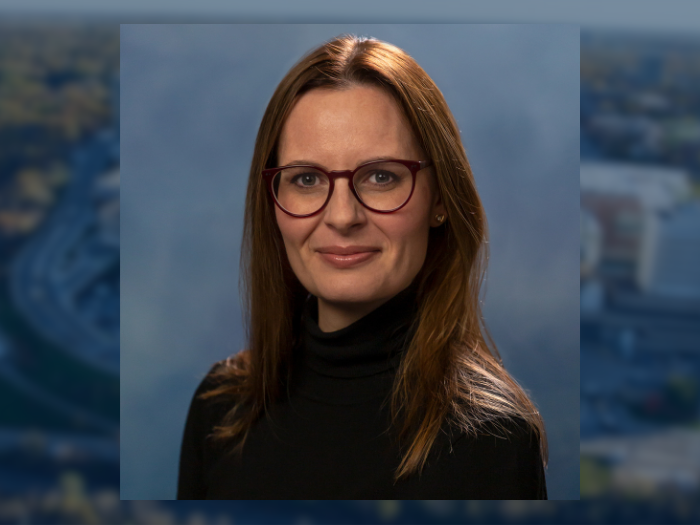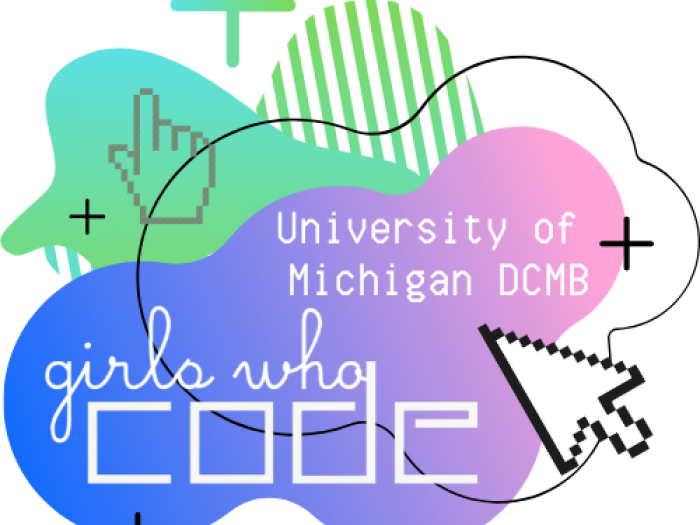10:15 AM
Author |
Ann Arbor – University of Michigan Health has awarded $5.4 million to 13 community-based initiatives over a period of three years, with an aim to address community health priorities across Washtenaw County.
U-M Health’s Community Health Services is responding to the health priorities outlined in its Community Health Needs Assessment, or CHNA, which tackles various social determinants of health.
“We are honored to support 13 vitally important community-based initiatives in this way,” said Tony Denton, J.D., M.H.A., senior vice president and chief environment, social and governance officer at U-M Health.
“These programs increase access and provide education and tangible resources, in addition to developing tools and encouraging their use to help community members achieve better health. Each of the programs receiving a grant award helps us in our efforts to address root causes of social, economic and health inequities.”
The awards will span the fiscal years of 2024 to 2026 and support projects that are focused on improving health equity and reducing the effects of social determinants of health, such as education, employment, housing, homelessness, transportation, food insecurity and social support.
Denton added that these factors “are often responsible for the stark disparities in health outcomes.”
The Affordable Care Act requires tax-exempt hospitals and health systems to publish a CHNA with a corresponding implementation plan, or IP, every three years. U-M Health’s FY2022-FY2024 CHNA and IP, which were published jointly with Trinity Health-Ann Arbor and Chelsea Hospital, identified mental health and substance use disorders, obesity and related illnesses, and pre-conceptual and perinatal health as Washtenaw County’s most pressing health needs.
“This grant program was initially created in 2019 to proactively address the identified health priorities within the communities where the issues reside,” said Alfreda Rooks, director of U-M Health’s Community Health Services.
“The program has completed 26 initial projects and has six continuation projects that were originally a part of the initial group. We are also actively working on three special projects in addition to the current projects being funded. We are proud that Community Health Services continues to work directly for and with community members. This is especially important as the effects of COVID-19 have demonstrated that upstream interventions are needed to increase health equity throughout our communities.”
In December 2022, Community Health Services solicited proposals from community-based 501(c)3 organizations and U-M schools, centers and programs that work directly in the community.
The awards were finalized in the summer of 2023 by the Community Health Services’ grants team and executive leadership.
“Continuing to increase health equity by partnering with community-based organizations and our U-M schools, centers and programs is critically important to U-M Health’s priorities, which include improving the overall health of the communities we serve,” said Karen Zynda, director of community benefit and community health needs assessment at U-M Health’s Community Health Services.
Denton added that as a major provider of health care, as well as an employer, “Michigan Medicine is committed to collaborating with partners in its mission to build bridges and connect communities to advance physical, mental, and economic health and well-being.”
He also noted that “improving access to essential health care and providing added convenience to community members” are both high priorities for U-M Health.
“We look forward to seeing positive impacts from these agency awards as we seek to make a meaningful difference in the health status for those who have access to the community health programs sponsored by U-M Health.”
Grantees for fiscal years 2024-2026 by priority are:
Funding that addresses mental health and substance use disorders:
- Student Advocacy Center of Michigan
- Check and Connect Academic Mentoring
- $750,000
- Check and Connect Academic Mentoring
- Hope Medical Clinic Inc.
- Hope Clinic Integrated Behavioral Health Model
- $750,000
- Hope Clinic Integrated Behavioral Health Model
- Women’s Center of Southeastern Michigan
- Latinx Mental Health Services and Support
- $152,319
- Latinx Mental Health Services and Support
Funding that addresses obesity and related illnesses:
- University of Michigan Student Life, Adaptive Sports & Fitness
- Adaptive Sports & Inclusive Recreation Initiative
- $661,954
- Adaptive Sports & Inclusive Recreation Initiative
- Fed-up Ministries
- Fed-up Ministries 2023 Community Health Services
- $409,360
- Fed-up Ministries 2023 Community Health Services
Funding that addresses pre-conceptual and perinatal health:
- Corner Health Center
- Corner Doula Program
- $49,200
- Corner Doula Program
- Feonix Mobility Rising
- Reducing Barriers to Healthcare and Social Supports for Perinatal Patients in Washtenaw County for Improved Mother and Infant Health Outcomes
- $499,998
- Reducing Barriers to Healthcare and Social Supports for Perinatal Patients in Washtenaw County for Improved Mother and Infant Health Outcomes
- University of Michigan Department of Obstetrics and Gynecology
- Our Village: Motherhood was Never Meant to Happen in Isolation
- $50,000.
- Our Village: Motherhood was Never Meant to Happen in Isolation
- University of Michigan Department of Psychiatry
- Community Building through Relational Health: Perinatal Dialectical Behavior Therapy in Community Prevention/Intervention
- $450,431
- Community Building through Relational Health: Perinatal Dialectical Behavior Therapy in Community Prevention/Intervention
Funding that addresses multiple community health needs:
- University of Michigan Health Michigan Medicine Ypsilanti Health Center
- Ypsilanti Health Center Medical-Legal Partnership Evidence-Informed Project
- $334,487
- Ypsilanti Health Center Medical-Legal Partnership Evidence-Informed Project
- University of Michigan School of Nursing
- The Whitmore Lake Health Hub
- $750,000
- The Whitmore Lake Health Hub
- Habitat for Humanity of Huron Valley
- 2023 Habitat for Humanity of Huron Valley HIP
- $450,000
- 2023 Habitat for Humanity of Huron Valley HIP
- Washtenaw Health Plan
- Washtenaw County Medical Debt Survey
- $5,000
- Washtenaw County Medical Debt Survey
